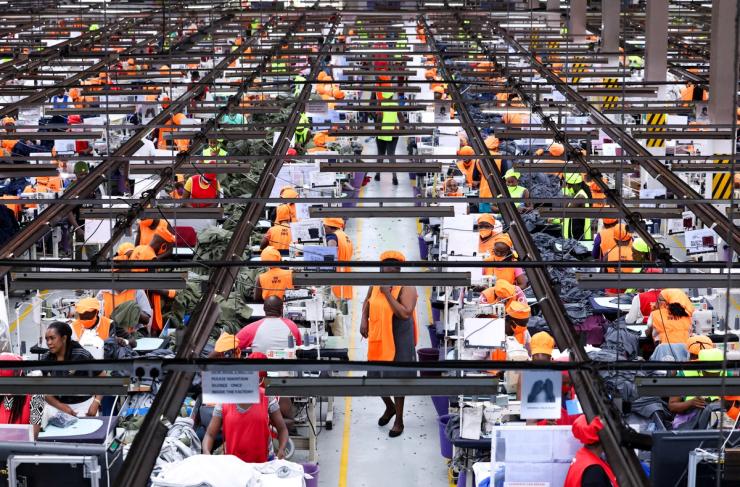The uncomfortable truth is that “Africa” doesn’t exist, at least from a trade point of view.
Four years into implementing the African Continental Free Trade Area (AfCFTA), the world’s largest free trade area by population, the continent’s 1.5 billion consumers and $3 trillion in aggregate GDP remain fractured into isolated mini-markets. Intra-African trade was still just 14% of total African trade in 2024, compared to roughly 60% intra-regional trade for both Asia and Europe.
A Nigerian entrepreneur in Lagos may struggle more to do business in neighboring West African countries than in far-off London — not because of distance, but because of regulatory barriers that the AfCFTA has yet to dissolve. The same distance that costs $175 for a roundtrip flight in Europe can cost nearly $2,000 in Africa, for example.
This isn’t the AfCFTA’s fault. The agreement provides the transformative framework Africa needs. But integration can’t be legislated from the top down alone. It has to be built from the bottom up, too.
The fragmentation challenges that Africa faces run deeper than trade policy can reach: The continent is still grappling with hostile visa regimes between countries that share histories and cultures, xenophobic aggression towards fellow Africans in some places, and ethnic tensions that divide populations within borders. These aren’t just technical problems. They reflect a mindset that thinks individually instead of collectively, nationally rather than continentally.
This pervasive fragmentation creates a vicious cycle. Small, isolated markets can’t achieve economies of scale. Without scale, businesses remain inefficient and uncompetitive. Without competitive businesses, the 15 million jobs needed annually for Africa’s youth bulge won’t materialize. Without jobs, the continent’s much-ballyhooed demographic dividend becomes a demographic disaster.
The AfCFTA addresses the regulatory architecture, but who’s addressing the mindset?
The agreement can eliminate tariffs, but it can’t force Zambia’s innovation ecosystem to accept Kenyan founders building businesses there. It can harmonize customs procedures, but it can’t create the pan-African business networks that lubricate commerce. It can form a single market on paper, but it can’t make institutional African funds prioritize domestic opportunities: Nigeria’s sovereign wealth fund allocates just 25% of its private equity and venture capital investments to Africa, for example.
That’s why the most revolutionary act in African business is integration — and it doesn’t require waiting for AfCFTA implementation. It’s refusing to accept the artificial barriers that divide natural markets and partners. It’s thinking continentally in an environment that still thinks along ethnic divisions. Choosing unity over fragmentation, in business and beyond.
The urgency can’t be overstated, and time is running out. By 2035, more young people will enter the African workforce annually than in the rest of the world combined. AfCFTA sets the stage, but stages don’t create jobs — people do. That requires South African businesses hiring Nigerian engineers, Egyptian venture capitalists funding Ethiopian startups, entrepreneurs in the diaspora building talent pipelines across the continent. These are choices that actualize Africa.
Africa doesn’t exist today, and even perfect implementation of the AfCFTA won’t change that. Integration isn’t a policy, it’s a choice. And Africa’s future depends on Africans worldwide choosing it.
Emeka Ajene is the founder of Afridigest, a media and strategic intelligence platform focused on African markets, and co-founder and former CEO of Gozem, a super app operating in Francophone West and Central Africa.


